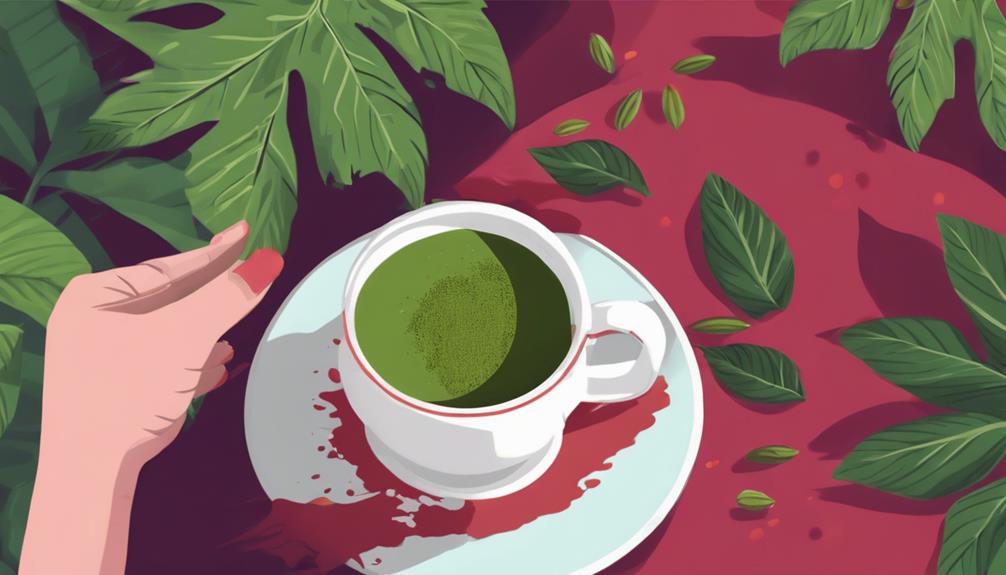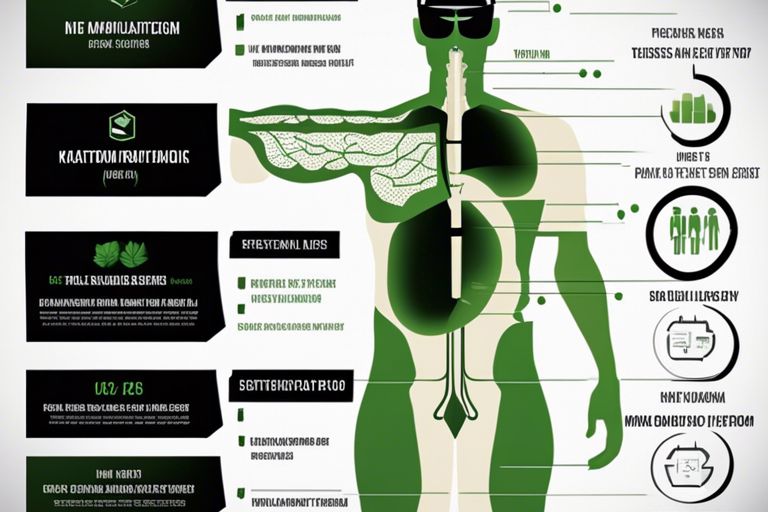Deprecated: mb_convert_encoding(): Handling HTML entities via mbstring is deprecated; use htmlspecialchars, htmlentities, or mb_encode_numericentity/mb_decode_numericentity instead in /home/users/kratomfiles/www/kratomfiles.com/wp-content/plugins/quick-adsense-reloaded/includes/template-functions.php on line 3552
Kratom, a plant native to Southeast Asia, has gained attention for its potential uses beyond pain relief. While its analgesic properties are well-known, emerging research suggests that kratom may offer benefits in areas such as energy enhancement, mood support, stress reduction, and cognitive function. Additionally, traditional medicine has utilized kratom for various purposes, and ongoing studies are exploring its potential applications in medicine. However, it is important to approach this topic with caution, as further research is needed to fully understand the safety and effectiveness of kratom for these uses. In this discussion, we will delve into the different potential uses of kratom, shedding light on its potential benefits and risks and exploring the current state of scientific understanding.
Key Takeaways
- Kratom has potential benefits beyond pain relief, including enhancing energy and focus.
- Individual responses to kratom can vary, so responsible use and consult a healthcare professional are important.
- Kratom should be approached with caution and used in moderation, as it can be addictive and may have adverse effects at higher doses.
- More research is needed to fully understand the potential benefits and risks of kratom for mental health and other uses.
Energy and Focus Enhancement
Kratom has been recognized for its potential to enhance energy and focus, making it a popular choice for individuals seeking a natural stimulant that can aid in alertness and mental clarity. The local population has traditionally used, native to Southeast Asia, kratom leaves for various purposes, including increasing energy levels and improving concentration.
Regularly used by people who seek an energy boost, kratom products can provide effects similar to caffeine. Different strains of kratom, such as Maeng Da or Thai, may have varying levels of alkaloids, the active compounds responsible for their stimulating effects. The dosage of kratom also plays a crucial role in its energizing properties. Lower doses of kratom tend to provide more stimulating effects, while higher doses may result in sedative effects.
The effects of kratom alone can be subjective, as individuals may experience different outcomes based on their unique biochemistry. Some people report feeling a surge of energy, improved focus, and enhanced mental clarity after consuming kratom. These effects can be attributed to the specific alkaloids present in kratom, such as mitragynine and 7-hydroxymitragynine, which interact with opioid receptors in the brain.
While kratom is commonly used for energy and focus enhancement, it is essential to understand that its effects can vary among individuals. Some people may find it beneficial for improving alertness and concentration, while others may not experience the same effects. Additionally, it is important to note that kratom should not be used as a substitute for professional medical treatment. If you are seeking to treat a specific condition, it is always best to consult with a healthcare professional before incorporating kratom into your routine.
Mood and Mental Health Support
Kratom has been found to have potential mood-enhancing effects and may serve as an antidepressant. Many individuals utilize kratom for relaxation, anxiety relief, and as a treatment for depression. Different strains and dosages of kratom can induce various effects, including relaxation, confusion, increased energy, and heightened alertness. However, further research is necessary to fully understand the potential benefits and risks of kratom for mental health.
Elevation of Mood
Research suggests that the use of kratom may have mood-enhancing effects and potential as an adjunctive treatment for individuals seeking support for their mood and mental health. Kratom is known to interact with opioid receptors in the brain, which can lead to feelings of relaxation and euphoria. It has been reported that different types and doses of kratom can induce varying effects, ranging from relaxation to confusion. Some people use kratom as a substitute for opioids to relieve pain or to treat anxiety and depression. However, it is important to note that kratom can be addictive, similar to opioids, and may result in moderate withdrawal symptoms. The National Institute on Drug Abuse highlights the potential risks of kratom and advises caution when using it to treat anxiety, depression or in combination with other substances.
Anxiety and Depression Relief
The potential mood-enhancing effects and therapeutic applications of kratom extend beyond its role in elevating mood, as it shows promise in providing support for individuals experiencing anxiety and depression. While limited research suggests that kratom may offer relief for these conditions, it is important to note that more studies are needed to fully understand its effects on mood and mental health. Some people use kratom for relaxation, anxiety relief, and even as a treatment for depression. However, it is crucial to consult with a healthcare professional before considering kratom for anxiety and depression relief. As with any herbal supplement, it is essential to approach its therapeutic use with caution and awareness of potential risks.
Stress and Anxiety Reduction

Stress and anxiety reduction can be achieved through the potential mood-enhancing and relaxation-inducing effects of kratom. Many individuals seek natural alternatives for managing their stress and anxiety symptoms, and kratom has gained popularity as one such option. The sedative-like properties of kratom have been reported to calm the mind and reduce stress levels, making it a potential herbal supplement for mental health.
Kratom’s potential as an anxiolytic and stress-relieving agent has piqued the interest of researchers. While there is ongoing research in this area, it is important to note that individual responses to kratom can vary. As with any herbal supplement, it is advisable to consult a healthcare professional before using kratom for stress and anxiety reduction.
The potential benefits of kratom in stress and anxiety reduction are largely anecdotal, as scientific studies on its specific effects are limited. However, many users report feeling a sense of relaxation and improved mood after consuming kratom. These effects are believed to be due to the interaction of kratom’s active compounds with the brain’s receptors.
It is worth noting that kratom should not be considered a substitute for professional medical advice or treatment. If you are experiencing chronic or severe stress and anxiety, it is essential to consult a healthcare professional who can provide appropriate guidance and support. They can help determine the best course of action for managing your mental health.
Boosting Cognitive Function
Kratom exhibits potential benefits for enhancing cognitive function, with some individuals reporting increased alertness and mental clarity when using this herbal supplement. While the research on kratom’s effects on cognitive function is limited, there are several factors to consider when exploring its potential in this area.
Here are some key points to understand about kratom’s impact on cognitive function:
- Mood-enhancing effects: Research suggests that kratom may have mood-enhancing effects and potential as an antidepressant. Improved mood and reduced depressive symptoms can indirectly support cognitive function by promoting a positive mental state.
- Strain and dosage variations: Different strains and doses of kratom may have varying effects on cognitive function. Some strains may be more stimulating and provide increased focus, while others may have a more calming effect. Finding the right strain and dosage that works for an individual’s specific cognitive needs is important.
- Individual variability: It’s important to note that the effects of kratom on cognitive function may vary from person to person. Factors such as metabolism, body composition, and overall health can influence how an individual responds to kratom.
- Lack of research: While there is anecdotal evidence supporting kratom’s cognitive-enhancing effects, more research is needed to fully understand its impact. The current body of scientific literature is limited, and further studies are necessary to explore the potential benefits and risks of kratom for cognitive function.
- Caution and responsible use: As with any supplement, it is crucial to approach kratom with caution and use it responsibly. It is advisable to consult with a healthcare professional before incorporating kratom into a cognitive enhancement regimen.
Promoting Relaxation and Sleep

When exploring the potential benefits of kratom, another area of interest is its ability to promote relaxation and improve sleep quality. Many individuals have reported using kratom as a natural remedy to help with anxiety, stress, and sleep-related issues. Kratom is known for its sedative-like effects, which can contribute to its potential to promote relaxation and better sleep.
Kratom, a plant native to Southeast Asia, contains compounds that act on the brain’s opioid receptors, resulting in opioid- and stimulant-like effects. These effects can help individuals achieve a state of calmness and tranquility, making it easier to relax and fall asleep. Additionally, kratom’s sedative properties may assist in managing sleep disorders such as insomnia, restless leg syndrome, and sleep apnea.
While there is anecdotal evidence suggesting the benefits of kratom for relaxation and sleep, it is important to approach its use with caution. Kratom has been associated with respiratory depression, especially at higher doses, and there have been reports of adverse effects with long-term use. It is crucial to consult a healthcare professional before using kratom to promote relaxation and sleep, as individual responses can vary.
It is worth noting that the use of kratom for relaxation and sleep has gained attention through social media platforms. However, it is important to rely on scientific research and consult qualified healthcare professionals for accurate information and guidance. Kratom should not be seen as a substitute for appropriate medical care in managing sleep-related issues or chronic pain. It is always best to explore comprehensive treatment options under the guidance of healthcare professionals.
Enhancing Physical Endurance and Stamina
Enhancing physical endurance and stamina can be a potential benefit of kratom due to its stimulant-like effects. Some individuals use kratom to increase alertness, energy, and endurance during physical activities. The energizing properties of kratom may help improve physical performance and stamina. The stimulant effects of kratom can potentially aid in prolonged physical activity and exercise. Although research is ongoing to further understand the impact of kratom on physical endurance and stamina, anecdotal evidence suggests that it may be beneficial in this regard.
- Kratom’s stimulant-like effects: Kratom contains alkaloids that act as stimulants, providing an energy boost and increasing alertness.
- Increased alertness and energy: Users of kratom report feeling more alert and energized, which can be beneficial for physical activities requiring endurance and stamina.
- Improved physical performance: Some individuals have reported enhanced physical performance after consuming kratom, allowing them to push through fatigue and maintain their stamina.
- Potential aid in prolonged physical activity: The stimulant properties of kratom may help individuals engage in prolonged physical activity without feeling as fatigued.
- Anecdotal evidence: While more research is needed to fully understand the effects of kratom on physical endurance and stamina, many users have reported positive experiences in this regard.
It is important to note that individual experiences with kratom may vary, and its effects on physical endurance and stamina may not be the same for everyone. Additionally, it is crucial to use kratom responsibly and in moderation, as excessive use may lead to negative side effects. As with any supplement or substance, it is advisable to consult with a healthcare professional before incorporating kratom into your fitness routine.
Can Kratom Be Used for More Than Just Boosting Stamina?
Looking for more benefits than just boosting stamina with kratom? This natural supplement has been used to alleviate pain, reduce anxiety, and even aid in managing opioid withdrawal symptoms. So, whether you’re looking for an energy boost or other potential health benefits, kratom may be worth considering.
Are There Other Uses for Kratom Beyond the Common Myths and Misconceptions?
Yes, there are other uses for kratom beyond the common kratom myths and misconceptions. Many people use kratom for pain relief, anxiety reduction, and as a natural energy booster. It is important to educate ourselves and separate fact from fiction when it comes to kratom myths and misconceptions.
Can Kratom Be Used for Uses Other Than Pain Relief, Such as Therapeutic Potential?
Yes, kratom as alternative medication shows promise for uses beyond pain relief. Research suggests its therapeutic potential for anxiety, depression, and opioid addiction. Many users also report better focus and energy. However, further studies are needed to understand its full range of benefits and potential risks.
Potential Applications in Medicine

The potential applications of kratom in medicine are currently being researched for its therapeutic effects on various conditions such as pain relief, anxiety, depression, and opioid use disorder. Kratom, a plant native to Southeast Asia, has gained attention for its potential medicinal properties. While traditional medicine has long used kratom for various purposes, modern research aims to understand its potential applications in Western medicine.
Animal studies have shown promising results, suggesting that kratom may have therapeutic properties such as antidepressant and pain-relieving effects. The National Institute on Drug Abuse (NIDA) supports research on the potential therapeutic uses of kratom, including its compounds as potential treatments for opioid use disorder and chronic pain. However, it is important to note that more research is needed to fully understand the therapeutic effects and safety of kratom for medical use.
To provide a clearer understanding of the potential applications of kratom in medicine, the following table presents some of the conditions for which kratom is being researched:
| Condition | Potential Benefits of Kratom |
|---|---|
| Pain Relief | Kratom may have analgesic properties |
| Anxiety | Kratom may have anxiolytic effects |
| Depression | Kratom may have antidepressant properties |
| Opioid Use Disorder | Kratom may have potential as a treatment option |
It is important to recognize that while initial research is promising, the use of kratom for medical purposes is still not widely accepted or regulated. It is crucial to consult with healthcare professionals before considering kratom as a treatment option. Further research is needed to determine the effectiveness, safety, and appropriate dosages of kratom for specific medical conditions.
How Can Kratom be Used for Purposes Beyond Pain Relief?
Natural kratom pain management is not limited to just relieving pain. Many people use kratom for its stimulating and mood-enhancing effects. It can also be used to reduce anxiety and depression, improve focus and concentration, and even boost energy levels. Its versatile benefits go beyond just pain relief.
Frequently Asked Questions
Does Kratom Help With Severe Pain?
Kratom has been reported to provide relief for severe pain, although it is not approved by the FDA for this purpose. The dosage and strain of kratom may vary for managing chronic pain, and potential side effects should be considered. Comparisons between kratom and traditional pain medications are still being studied. User experiences with using kratom for severe pain vary, and it is important to consult a healthcare professional before using kratom as an alternative treatment for pain management. The legality and regulation of kratom for pain relief also vary by jurisdiction. The long-term effects of using kratom for severe pain are still being researched, and combining kratom with other pain management methods should be done cautiously. The science behind how kratom works for pain relief is not fully understood.
What Does 7-Hydroxymitragynine Do?
7-Hydroxymitragynine, a compound found in kratom leaves, has been the subject of research regarding its effects on the body and mind. It is believed to play a crucial role in kratom’s analgesic properties by interacting with opioid receptors in the brain. Additionally, this compound may have mood-enhancing effects and potential therapeutic uses, such as an antidepressant. However, limited research has been conducted on the specific health effects and potential risks associated with 7-Hydroxymitragynine use, making further investigation necessary.
Does Kratom Increase Serotonin or Dopamine?
Kratom’s effect on mood regulation and its potential benefits for anxiety management and depression symptoms have been a subject of interest. The modulation of neurotransmitters, such as serotonin and dopamine, plays a crucial role in kratom’s impact on mood and overall well-being. By potentially promoting relaxation, stress relief, and mood enhancement, kratom has been explored as a natural remedy for mood disorders. Further research is needed to better understand the relationship between kratom, serotonin levels, dopamine regulation, and its effects on mood and mental health.
What Are the Antagonists in Kratom?
The antagonists in kratom are compounds that block or inhibit the activity of certain receptors in the body. These antagonists, such as ajmalicine and other alkaloids, may contribute to kratom’s opioid-like effects and potential therapeutic properties. However, further research is needed to fully understand how these antagonists interact with the body’s receptors and their implications for medical use. Understanding kratom’s antagonists is essential for evaluating its potential as a treatment for opioid use disorder and chronic pain.









